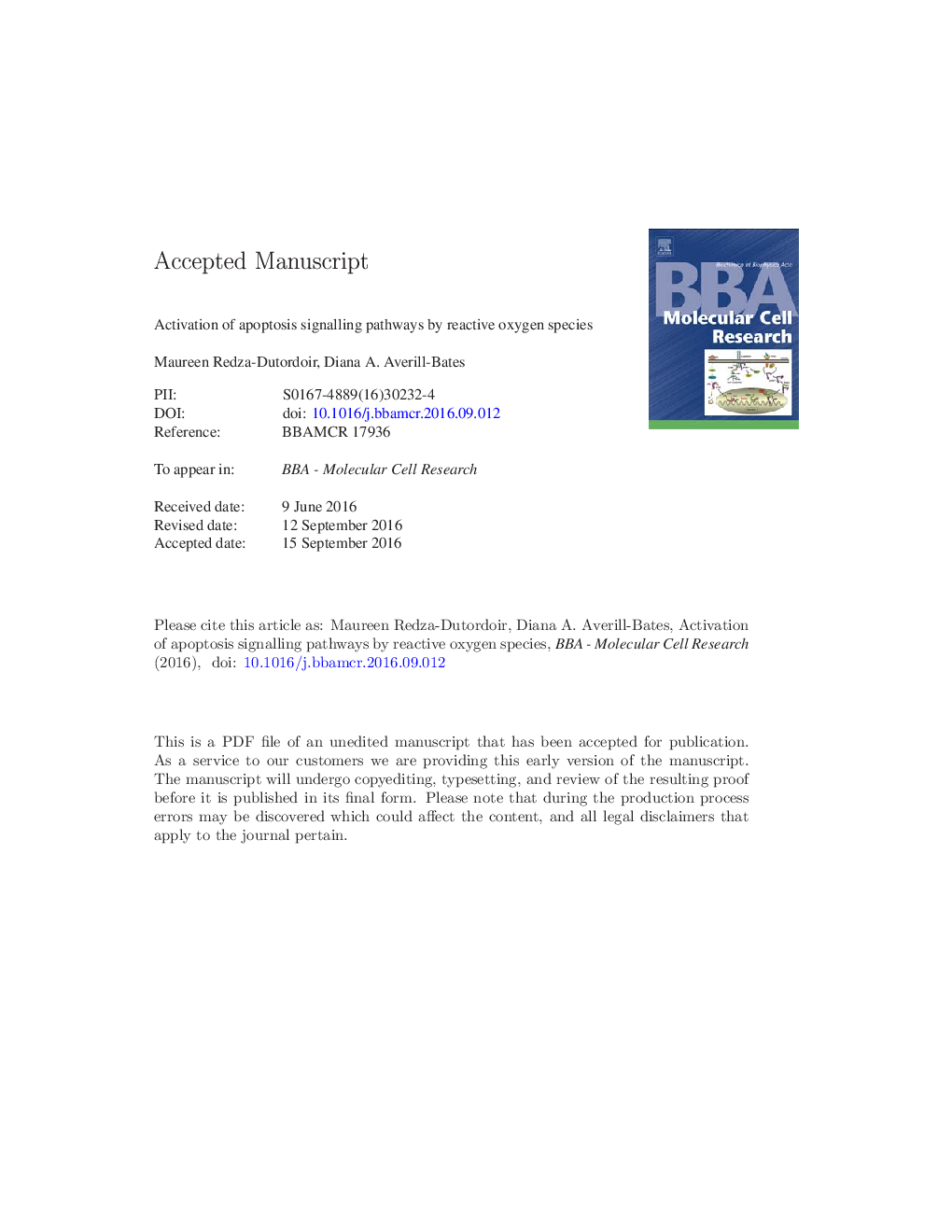| Article ID | Journal | Published Year | Pages | File Type |
|---|---|---|---|---|
| 5508788 | Biochimica et Biophysica Acta (BBA) - Molecular Cell Research | 2016 | 51 Pages |
Abstract
Reactive oxygen species (ROS) are short-lived and highly reactive molecules. The generation of ROS in cells exists in equilibrium with a variety of antioxidant defences. At low to modest doses, ROS are considered to be essential for regulation of normal physiological functions involved in development such as cell cycle progression and proliferation, differentiation, migration and cell death. ROS also play an important role in the immune system, maintenance of the redox balance and have been implicated in activation of various cellular signalling pathways. Excess cellular levels of ROS cause damage to proteins, nucleic acids, lipids, membranes and organelles, which can lead to activation of cell death processes such as apoptosis. Apoptosis is a highly regulated process that is essential for the development and survival of multicellular organisms. These organisms often need to discard cells that are superfluous or potentially harmful, having accumulated mutations or become infected by pathogens. Apoptosis features a characteristic set of morphological and biochemical features whereby cells undergo a cascade of self-destruction. Thus, proper regulation of apoptosis is essential for maintaining normal cellular homeostasis. ROS play a central role in cell signalling as well as in regulation of the main pathways of apoptosis mediated by mitochondria, death receptors and the endoplasmic reticulum (ER). This review focuses on current understanding of the role of ROS in each of these three main pathways of apoptosis. The role of ROS in the complex interplay and crosstalk between these different signalling pathways remains to be further unravelled during the coming years.
Keywords
Related Topics
Life Sciences
Biochemistry, Genetics and Molecular Biology
Biochemistry
Authors
Maureen Redza-Dutordoir, Diana A. Averill-Bates,
